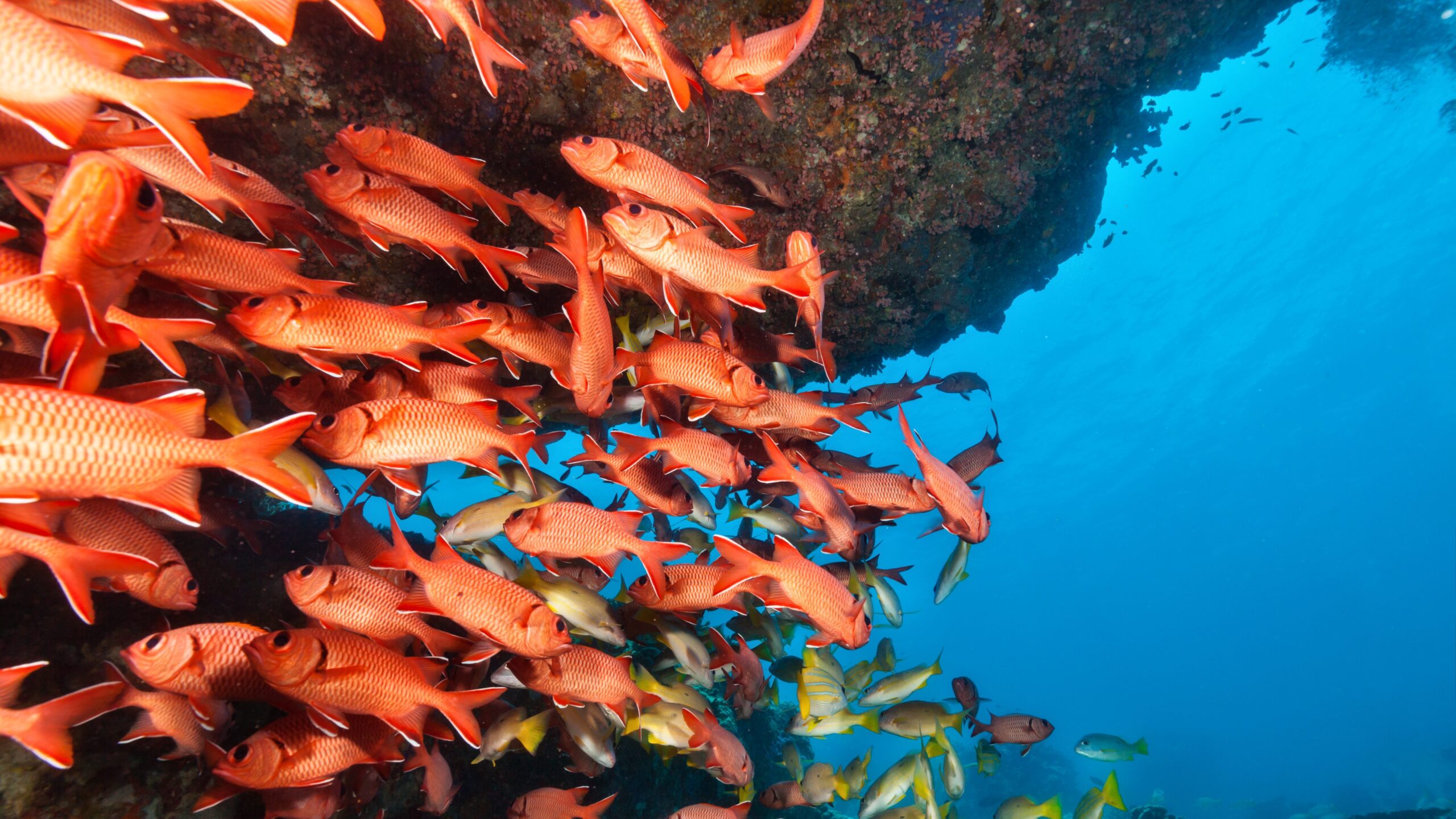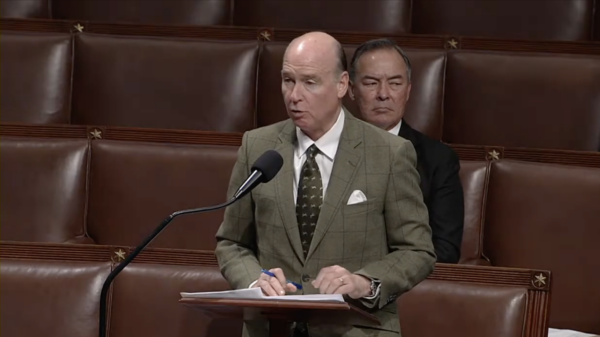U.S. Senator Katie Britt, R-Alabama, championed the U.S. Senate passing legislation aimed at curbing illegal fish imports in a Wednesday press release.
The Illegal Red Snapper and Tuna Enforcement Act filed by U.S. Senator Ted Cruz, R-Texas, has been cosponsored by Britt, alongside Senator Tommy Tuberville, R-Alabama; Roger Wicker, R-Mississippi; and Brian Schatz, D-Hawaii.
The legislation passed in the Senate on Monday and will now progress to the U.S. House of Representatives.
The bill would direct the National Institute of Standards and Technology and the National Oceanic and Atmospheric Administration to develop a method for identifying the country of origin of red snapper and certain species of tuna imported into the U.S.
“Senate Republicans are committed to putting America first, which requires legislation that protects hardworking Americans, including our tremendous Gulf of America red snapper fishermen and food producers in Alabama,” Britt said. “These Alabamians deserve fairness when fishing and selling their products in the market.”
The legislation would direct NIST and NOAA to develop a rapid field test used to ascertain whether fish were caught in the U.S. or in foreign waters, allowing them to catch red snapper illegally caught in the U.S. before it is imported back into the country over land.
Britt and the bill’s cosponsors have previously argued that Mexican fishers poaching fish in U.S. waters are in collaboration with drug cartels, and use profits gained by crossing the gulf to fish for snapper and tuna to finance “other illicit activities like drug smuggling and human trafficking.”
Both Mexican and U.S. officials have accused drug trafficking organizations such as the Gulf Cartel of transporting drugs through fishing vessels and buying poachers’ boats in exchange for a cut of their profits. However, estimates of how much money the illicit snapper trade generates for drug trafficking organizations and whether the profits are used to fund other crimes have not been reported by NOAA or the U.S. Coast Guard.
Northern red snapper populate both U.S. and Mexican waters in the gulf, with Mexican fishers reportedly traveling to U.S. waters in the gulf for denser populations due to NOAA regulations and catch limits.
“The Illegal Red Snapper and Tuna Enforcement Act is a first step to protecting Alabama’s fishermen and putting cartel-backed poachers on notice for their illicit activities in the Gulf,” said Britt.
Tuberville similarly expressed support for the legislation’s passage in the Senate in a Monday press release.
“This is great news for our hardworking fishermen who have worked overtime to compete with Mexican cartels flooding our markets with illegal red snapper,” the senator said.
“It’s also a win for every American because it cuts off the cash flow to cartels, which have been terrorizing our communities. I’ll continue standing up for our fishermen and fighting to preserve the outdoor activities Alabamians enjoy,” he continued.
Britt’s office cited that roughly 100,000 red snapper are harvested off Alabama’s coast yearly, making up nearly a third of the Gulf of Mexico’s total recreational harvest.
The senator also cited data that reported recreational and commercial fishing supported over 12,000 jobs in Alabama, and contributed to more than $1.1 billion in statewide sales in 2022.
“Red snapper is a core component of Coastal Alabama’s economy, and I’m proud to fight to protect our hardworking fishermen and food producers,” Britt said.
According to Britt’s office and the bill’s cosponsors, while technology exists to test the geographic origin of other foods, there is no currently existing chemical tests for red snapper and tuna’s area of origin.
In 2024, a rapid genetic test was developed for verifying a red snapper’s authenticity by Florida State University professor Prashant Singh, graduate student Samuel Kwawukume, and SeaD Consulting founder David Williams.
Previously, the fish had to be sent to a lab offsite to have their genetics tested, a process which took multiple days.
The study leading to the test’s development reported that, due to a history of overfishing, economic demand has increased for red snapper from the Gulf of Mexico. The study also cited that Caribbean red snapper from Brazil and the South Atlantic Ocean, as well as tilefish and tilapia, have often been purposely mislabeled and sold in the U.S. as northern red snapper.
The Illegal Red Snapper and Tuna Enforcement Act does not provide provisions on what methodologies NOAA and NIST are to use to ascertain the country of origin of red snapper and tuna. The legislation does, however, provide a deadline for the agencies to provide a report to appropriate Congressional committees of two years after the bill’s passage.
The bill’s passage in the Senate follows an executive order, entitled “Restoring American Seafood Competitiveness,” signed by President Donald Trump in April.
The executive order calls for the Secretary of Commerce and Secretary of Health and Human Services to work alongside U.S. fishing industry leaders to “immediately consider suspending, revising, or rescinding” regulations on the U.S.’s commercial fishing, fish processing and aquaculture industries.
“It is the policy of the United States to promote the productive harvest of our seafood resources; unburden our commercial fishermen from costly and inefficient regulation; combat illegal, unreported, and unregulated (IUU) fishing; and protect our seafood markets from the unfair trade practices of foreign nations,” the order reads.
Controversy has arisen, however, regarding proposed Trump administration budget cutbacks and their potential impacts on combatting IUU fishing.
During a July meeting of the U.S. Senate Commerce Subcommittee on Coast Guard, Maritime and Fisheries, director of the Stephenson Ocean Security Project at the Center for Strategic and International Studies, Whitley Saumweber, warned against the Trump administration’s proposal to cut NOAA’s budget by nearly a third, from $6.1 billion to $4.5 billion.
Saumweber argued the proposed cuts would harm NOAA’s ability to monitor and act against illegal fishing.
“When we’re negotiating with our competitors, we need to be educated and speak in a way that is informed about the state of affairs and about the nature of fish stocks and the health of the ocean,” Saumweber said. “With these cuts, it will fundamentally damage the ability to do that.”
House Republicans have since introduced legislation seeking a 6 percent rollback to NOAA’s budget, in opposition to the deeper cuts proposed by the Trump administration.
“This bill importantly balances federal funding to support American values and the priorities of the Trump administration by investing in programs that strengthen our economy and policies that protect our constitutional rights,” said U.S. Rep. Hal Rogers, R-Ky., chair of the Commerce, Justice and Science Appropriations Subcommittee.
The legislation focuses on maintaining the organization’s law enforcement duties while cutting funding for several research initiatives, including a 78 percent budgetary decrease for the Marine Mammal Commission.




















































